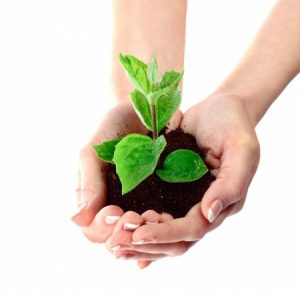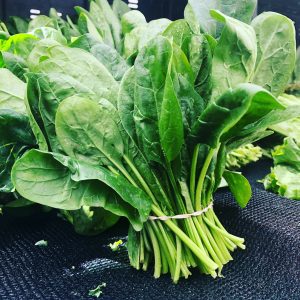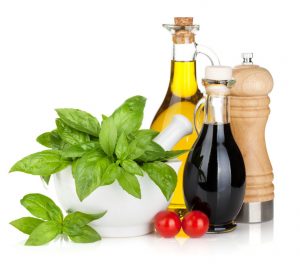
Vegetables
Vegetables are a very important part of balanced nutrition.
Tend a little garden if you can and grow vegetables at home so you have access to veggies everyday. Use organic fertilizers, no chemical pesticides, and secure a high vitamin and mineral content in the soil.
In the United States, so much food can be grown by so few farmers. Compared to other countries, the United States is geographically positioned at a perfect latitude to maintain an ample growing season. Therefore, one American farmer alone can feed over 200 people.
Two-thirds of Russia and one-half of Europe are located at latitudes above the American-Canadian border, so these countries have a limited growing season.
One farmer in Russia feeds less than 20 people.

America’s beautiful farmlands yield a variety of year-round crops, but we must be careful not to exploit our soil. Vitamins and minerals found in the soil are decreasing year to year due to overuse, GMO and glyphosate use.
Plants are cross-bred, hybrid, and GMO’d to create higher yields, resistance to disease and insect infestation, and quicker growing cycles.
The greater the influence modern technology has over natural foods, the further from basic nourishment foods become.
If nitrogen, phosphorus, potash and potassium are added to soils, for example, most plants can be forced to grow. When these chemicals were first introduced inorganically through manufacturing, many farmers stopped rotating their crops that replenished the natural nitrogen levels found in the soil.
Nutrition is now being sacrificed for higher yields.
Soil is the sole source for all the minerals a plant contains. Climate, humidity, soil conditions, genetics, light, aeration, and soil temperature determine color, size, texture, flavor, disease and insect resistance, vitamin and mineral content, and protein levels of vegetables.
The essential minerals present in the soil that are fundamental to plants are:
- Calcium
- Phosphorus
- Sodium
- Potassium
- Magnesium
- Manganese
- Copper
- Iron
- Zinc
- Iodine
- Chromium
- Cobalt
- Sulfur
- Molybdenum
These are minerals fundamental to human health. These are the essential elements that I can see on the hair analysis.

The minerals in soils come from the rocks that make up the soil, and all rocks contain essential elements. And did you know that all living things are comprised of the same elements?
Human beings require all of these elements for normal body function. Your bones and teeth are like rocks – they all require calcium. Your salty human tears are like the salt water in the oceans – each is made of sodium. Your skin is made of the same minerals as beach sand – both are made of silica.
Human beings and nature are connected when it comes to what we are made of, and everyone needs each of these minerals to maintain health.
Salads
Salads are a very important part of your daily diet.
Everything but the kitchen sink can be added to a salad. Try a wide variety of fruits and vegetables with every salad serving. Salad vegetables should always be stored in a dry, cold place – never wet. Dry thoroughly before storing, otherwise water withdraws the vitamins and minerals from the plant through osmosis.
The following is a list of foods that can be added to salads, and some ingredients are rich in vitamin B17*:

- watercress*
- spinach*
- bamboo sprouts*
- alfalfa sprouts*
- lentil sprouts*
- mung bean sprouts*
- garbanzo sprouts*
- red cabbage
- green cabbage
- romaine lettuce
- red tip lettuce
- peas
- carrots
- tomatoes
- radishes
- whole nuts*
- ground nuts*
- bell peppers
- onions
- scallions
- garlic
- marinated “leftovers”
- chard
- dandelion greens
- water chestnuts
- shallots
- leeks
- orange
- celery
- bibb lettuce
- endive
- Chinese cabbage
- broccoli
- chives
- chilies
- asparagus
- cooked rice
- marinated garbanzo beans*
- coconut
- fish
- chicken
- lean meat
- lemon
- cauliflower

Salad dressings should be made fresh whenever possible; avoid bottled or packaged with dry herbs. Commercial salad dressings are typically filled with chemical preservatives and chemical flavor enhancers. If you don’t have time to make your own dressing or if you simply want a change, choose dressings with the fewest ingredients possible.
The fewer ingredients in anything you buy prepackaged – the more natural the product will be, and the healthier it is for you.
Eat your vegetables, kids.
_______________
If you want to learn more about healthy living and disease prevention, contact me at janethull.com. Remember that you are never alone when you are looking for good health!
Gain access to all of my online programs, ongoing support, monthly Q&A, and more by joining my Private Inner Circle Membership Program. I look forward to supporting you on your journey to alternative health and wellness.
_____________
Disclaimer: This article is for informational purposes only, and is educational in nature. The FDA may not have evaluated some of the statements. This article is not intended to diagnose, treat, cure, or prevent any disease. Please discuss with your own, qualified health care provider before adding supplements or making any changes to your dietary program.
Before taking vitamins, consult your doctor; pre-existing medical conditions or medications you are taking can affect how your body responds to multivitamins.
You have our permission to reprint this article if you attribute us with a live back-link to this article and the youtube links. https://janethull.com/